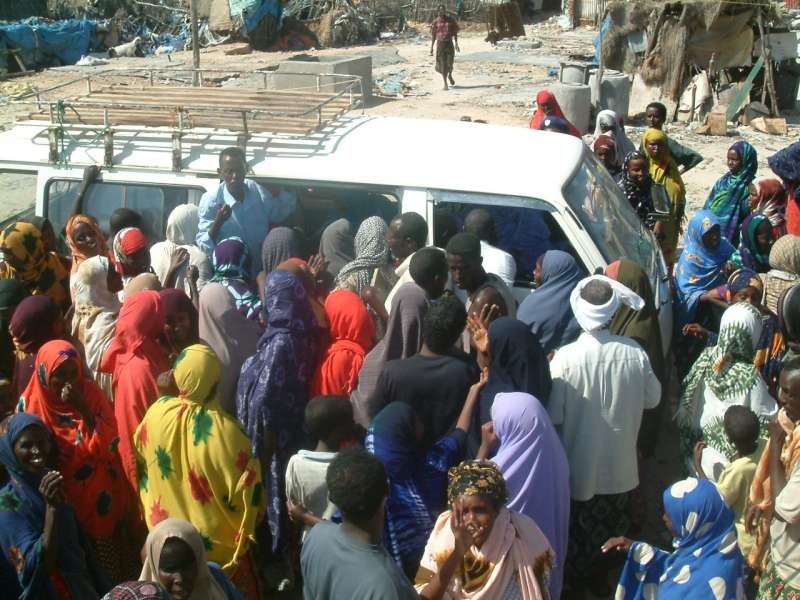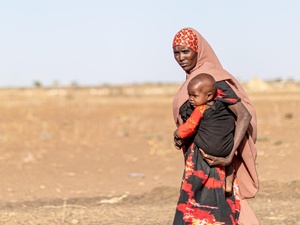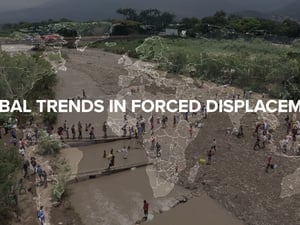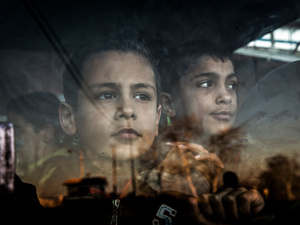Some 34,000 people flee heavy fighting in Mogadishu
Some 34,000 people flee heavy fighting in Mogadishu

NAIROBI, Kenya, May 15 (UNHCR) – The UN refugee agency said on Friday that it was deeply concern about a fresh eruption of fighting in the Somali capital of Mogadishu that has left many people dead and sparked a new wave of displacement.
So far, at least 135 people have been killed and 413 injured, while more than 34,000 people have fled their homes to escape the heavy fighting that broke out in Mogadishu last week between forces loyal to the Transitional Federal Government and opposition groups. These figures have been compiled by UNHCR and a network of partners.
Hospitals are reported to be overwhelmed by the number of casualties in need of urgent medical attention.
"It is extremely sad to see that, while we were preparing to assist people to return home and resume a normal life after years of displacement and suffering, a new humanitarian catastrophe is erupting," said Guillermo Bettocchi, UNHCR's representative to Somalia "What is more frustrating is our inability to access the displaced people and give them the help they need."
UNHCR's partners in the capital said that some people have been trapped in their homes for days, unable to flee because of the raging street battles. The displaced spoke of indiscriminate nightly bombings of residential areas and the targeting of civilians. Some witnessed many people dying, including
children and the vulnerable who were unable to leave the area of conflict.
One of the newly displaced is Fadumo, a mother of eight. "My husband was killed and I'm now alone with my children. The last time we ate was a week ago," an aid worker quoted her as saying after reaching safety outside Mogadishu.
The newly displaced include families who have taken advantage of a period of relative calm in Mogadishu and recently returned to their old neighbourhoods. The rate of displacement is increasing as the fighting escalates and spreads to other parts of the city.
Many of the displaced are heading towards Afgooye, some 30 kilometres south-west of Mogadishu, where some 400,000 internally displaced Somalis have sought shelter. Some have moved to other parts of the city. The most badly affected areas are the north Mogadishu neighbourhoods of Yaaqshiid, Wardhiigleey and Hawl Wadaag.
Hundreds of minibuses have ferried people out of Mogadishu. As a result of the high demand, the cost of transportation is going up daily. The latest fighting is a setback to efforts to establish stability in Mogadishu. Some 65,000 internally displaced people returned to the city between January and April.
security allows.
UNHCR has pre-positioned blankets, sleeping mats, plastic sheets and kitchen sets for up to 108,000 people in Mogadishu and is making arrangements for the rapid distribution of these desperately needed items as security allows.
By Roberta Russo in Nairobi, Kenya












